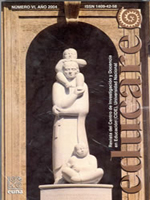Estrés y su afrontamiento en directores y directoras de colegios y escuelas en el circuito 03 de la provincia de Heredia
DOI:
https://doi.org/10.15359/ree.2004-6.6Abstract
The purpose of this study was to analyze how school principals working in the third circuit of the province of Heredia experienced and faced stress. 17 educational managers (11 women and 6 men) participated in the survey. The instruments used allowed us to assess stressing situations, the emotional correlation of each one of the situations, mood profiles and strategies to face them. In general, the findings allowed important factors to be identified as triggers of stress and its accompanying emotions. Some of these factors are: irresponsibility, lack of commitment and of a sense of belonging to the institution, lack of control and lack of respect. The psychological profile basically revealed a group of professionals with good vitality in spite of the burden derived from their positions. Finally, the strategies to cope with stress are mainly rational and denote a group of principals that prefer to plan their actions, to respond according to the problem and to reflect upon the situation.
References
Beck, A. (1979). Cog11i1ive rherapy ofbehavior modiftcation. New
York: Guilford Press.
Ellis, A. y Elliot, A. ( 1980). Terapia racional emotiva. México: Pax.
Meichenbaum, D. (1977). A cognilive behavior modificatio)i. Ncw
York: Plenun.
Mill , J. ( 1987). Cómo superar el estrés. Bilbao: Deusto.
Moss, R.H. (1988). Life stressors and coping resource influence·
health and wellbeing. Psycho/ogical assessme11t, 4, pp. 133 - 158.
Mostofsky, D.L. & Zaichkowsky L.D. (2002). Medica/ a11d
psycho/ogical aspecrs ofsporr cmd exercise. Morgentown. FIT.
Sánchez, F. ( 1996). La acrividadf,sica oriemada hacia la salud.
Barcelona: Nueva Década.
Published
How to Cite
Issue
Section
License
1. In case the submitted paper is accepted for publication, the author(s) FREELY, COSTLESS, EXCLUSIVELY AND FOR AN INDEFINITE TERM transfer copyrights and patrimonial rights to Universidad Nacional (UNA, Costa Rica). For more details check the Originality Statement and Copyright Transfer Agreement
2. REUTILIZATION RIGHTS: UNA authorizes authors to use, for any purpose (among them selfarchiving or autoarchiving) and to publish in the Internet in any electronic site, the paper´'s final version, both approved and published (post print), as long as it is done with a non commercial purpose, does not generate derivates without previous consentment and recognizes both publisher's name and authorship.
3. The submission and possible publication of the paper in the Educare Electronic Journal is ruled by the Journal’s editorial policies, the institutional rules of Universidad Nacional and the laws of the Republic of Costa Rica. Additionally, any possible difference of opinion or future dispute shall be settled in accordance with the mechanisms of Alternative Dispute Resolution and the Costa Rican Jurisdiction.
4. In all cases, it is understood that the opinions issued are those of the authors and do not necessarily reflect the position and opinion of Educare, CIDE or Universidad Nacional, Costa Rica. It is also understood that, in the exercise of academic freedom, the authors have carried out a rogorous scientific-academic process of research, reflection and argumentation thar lays within the thematic scope of interest of the Journal.
5. The papers published by Educare Electronic Journal use a Creative Commons License:














 The articles published by Educare Electronic Journal can be shared with a Creative Commons License:
The articles published by Educare Electronic Journal can be shared with a Creative Commons License: 



